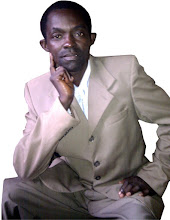WHAT WAS THE TIME?
"I say, Rackbrane, what is the time?" an acquaintance asked our friend
the professor the other day. The answer was certainly curious.
"If you add one quarter of the time from noon till now to half the time
from now till noon to-morrow, you will get the time exactly."
What was the time of day when the professor spoke?
A TIME PUZZLE.
How many minutes is it until six o'clock if fifty minutes ago it was
four times as many minutes past three o'clock?
A PUZZLING WATCH.
A friend pulled out his watch and said, "This watch of mine does not
keep perfect time; I must have it seen to. I have noticed that the
minute hand and the hour hand are exactly together every sixty-five
minutes." Does that watch gain or lose, and how much per hour?
THE WAPSHAW'S WHARF MYSTERY.
There was a great commotion in Lower Thames Street on the morning of
January 12, 1887. When the early members of the staff arrived at
Wapshaw's Wharf they found that the safe had been broken open, a
considerable sum of money removed, and the offices left in great
disorder. The night watchman was nowhere to be found, but nobody who had
been acquainted with him for one moment suspected him to be guilty of
the robbery. In this belief the proprietors were confirmed when, later
in the day, they were informed that the poor fellow's body had been
picked up by the River Police. Certain marks of violence pointed to the
fact that he had been brutally attacked and thrown into the river. A
watch found in his pocket had stopped, as is invariably the case in such
circumstances, and this was a valuable clue to the time of the outrage.
But a very stupid officer (and we invariably find one or two stupid
individuals in the most intelligent bodies of men) had actually amused
himself by turning the hands round and round, trying to set the watch
going again. After he had been severely reprimanded for this serious
indiscretion, he was asked whether he could remember the time that was
indicated by the watch when found. He replied that he could not, but he
recollected that the hour hand and minute hand were exactly together,
one above the other, and the second hand had just passed the forty-ninth
second. More than this he could not remember.
What was the exact time at which the watchman's watch stopped? The watch
is, of course, assumed to have been an accurate one.
CHANGING PLACES.
The above clock face indicates a little before 42 minutes past 4. The
hands will again point at exactly the same spots a little after 23
minutes past 8. In fact, the hands will have changed places. How many
times do the hands of a clock change places between three o'clock p.m.
and midnight? And out of all the pairs of times indicated by these
changes, what is the exact time when the minute hand will be nearest to
the point IX?
Read more articles on mathematics and math puzzles at my blog www.mathtutoronline.blogspot.com and
www.articlesoneducation.blogspot.com
Thursday, May 14, 2009
Subscribe to:
Post Comments (Atom)

1 comment:
I just wanted to add a comment here to mention thanks for you very nice ideas.Private Tutor Aventura I appreciate when I see well written material.
Post a Comment